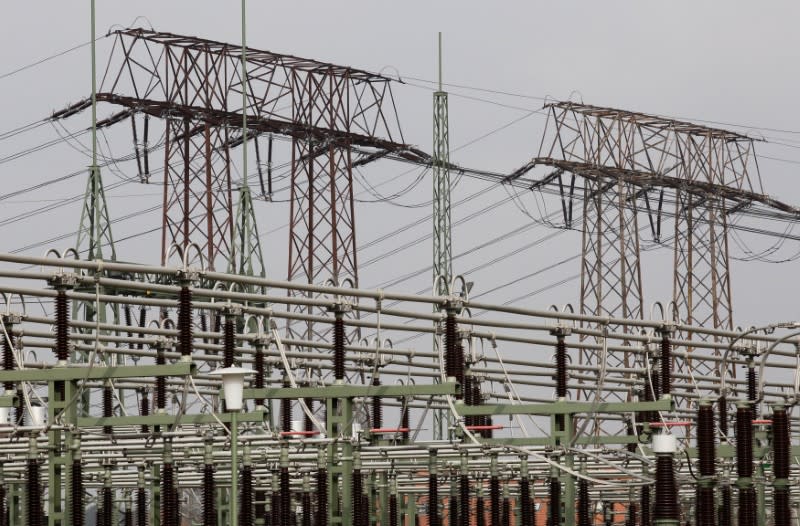Germany's 50Hertz power grid carried record 60% renewable energy in 2019 - CEO
By Vera Eckert, Christoph Steitz and Tom Käckenhoff
BERLIN (Reuters) - Three-fifths of the power carried by high-voltage grid firm 50Hertz in northeastern Germany last year came from renewable sources, a record high, chief executive Stefan Kapferer told Reuters on Tuesday.
"This was 5 (percentage) points more than in 2018 and our highest result ever," he said on the sidelines of a conference in Berlin. 50Hertz is one of Germany's four high-voltage grid firms.
That proportion is likely to rise, Kapferer added, given improvements in technology and managing volatility.
The firm, 80%-owned by Belgian transmission system operator Elia <ELI.BR>, has demonstrated that Germany's target for 65% of its power supply to come from renewables by 2030 can be handled by its transport networks, he said.
Most renewable power fed into the grid was from wind farms, with some also from sources such as solar parks and biomass generators.
The 60% figure is a world record for highly volatile wind power, though it is surpassed by countries with a high reliance on hydroelectricity, which is more predictable.
50Hertz saw 99 terawatt hours (TWh) of consumption last year in its region, which serves 18 million customers. Nearly 60 TWh of power from wind turbines and solar were received and distributed on its power lines, Kapferer said.
The share of renewables in Germany's overall power supply mix rose to over 40% last year in the country's staged transition away from carbon-polluting fossil fuels.
Elia Chief Executive Chris Peeters said in the same interview that grid companies had progressed through "learning-by-doing", for example in the handling of a solar eclipse in 2015, during which European grids mastered sharp supply drops.
Some 5-10 years ago transport networks thought they could only take 20%-30% of their power from renewable sources, he said.
"We have a better understanding what flexibility is now, how we can react to the signals coming out of the market and how to invest time in digitisation," he said.
"So I would say 70%-80% is the next tipping point."
The two grid managers said billions of euros of investment were needed in European grids in coming years.
The European Commission wants to boost interconnections so that expansion in renewables can be shared by member states.
Germany's power grid firms are demanding more money to enable the electrification of heating, transport and other industries.
"If German transmission system operators need to spend 60 billion euros (51 billion pounds) up to 2030 at least, then in the next regulatory period there might have to be higher returns," said Kapferer.
The next five-year period begins in 2024.
(Editing by Thomas Seythal and Jan Harvey)

 Yahoo News
Yahoo News 

